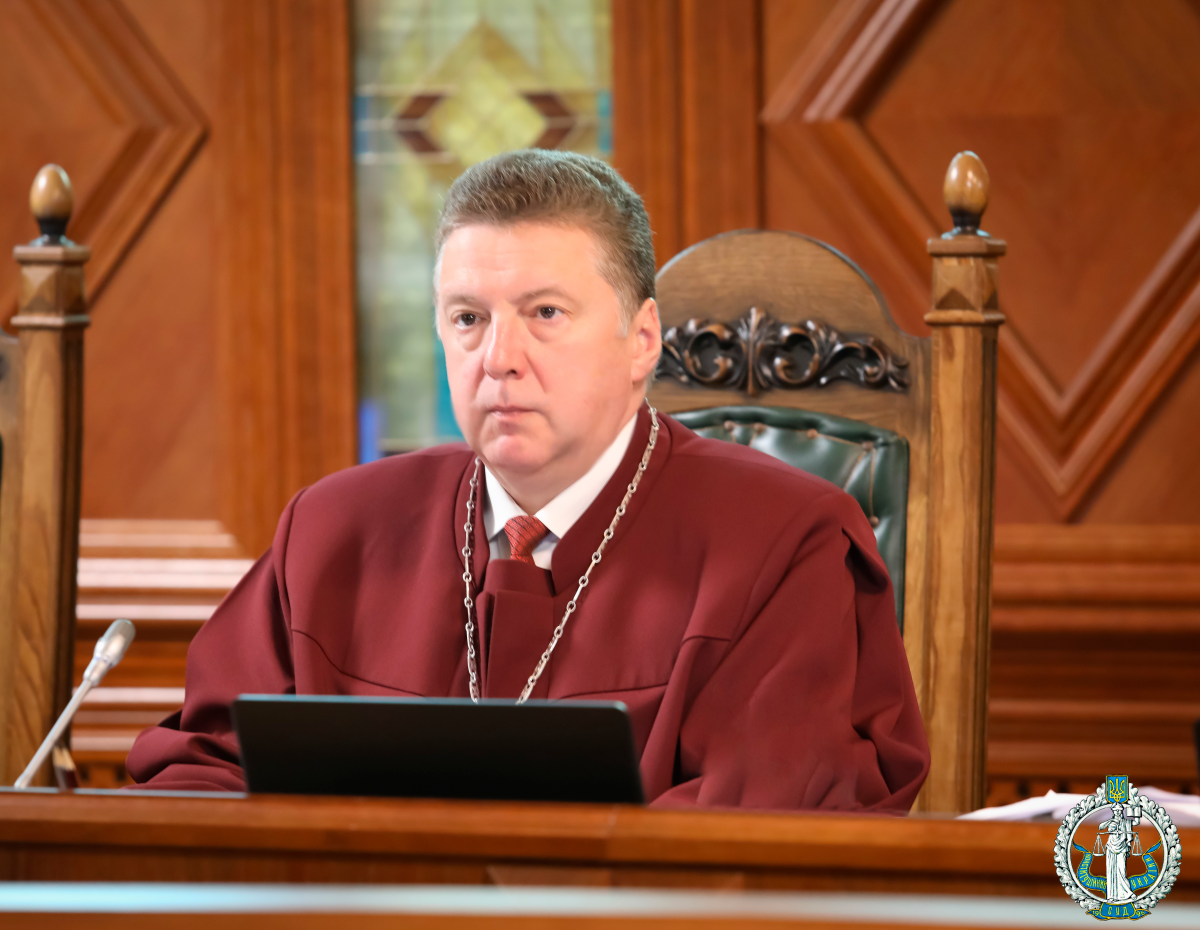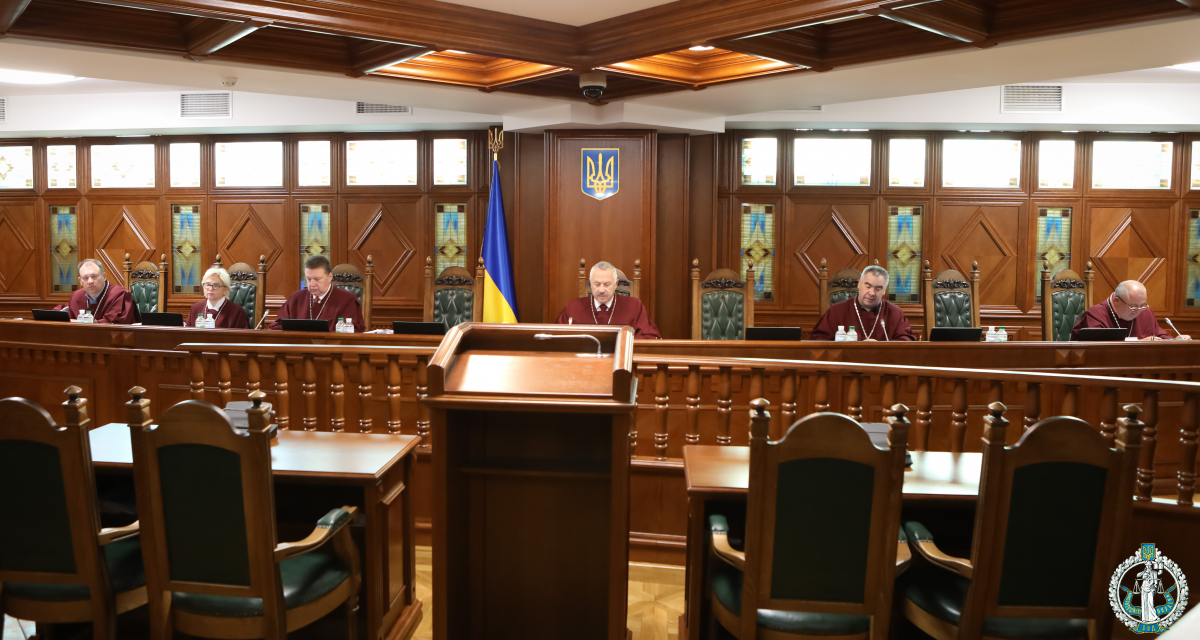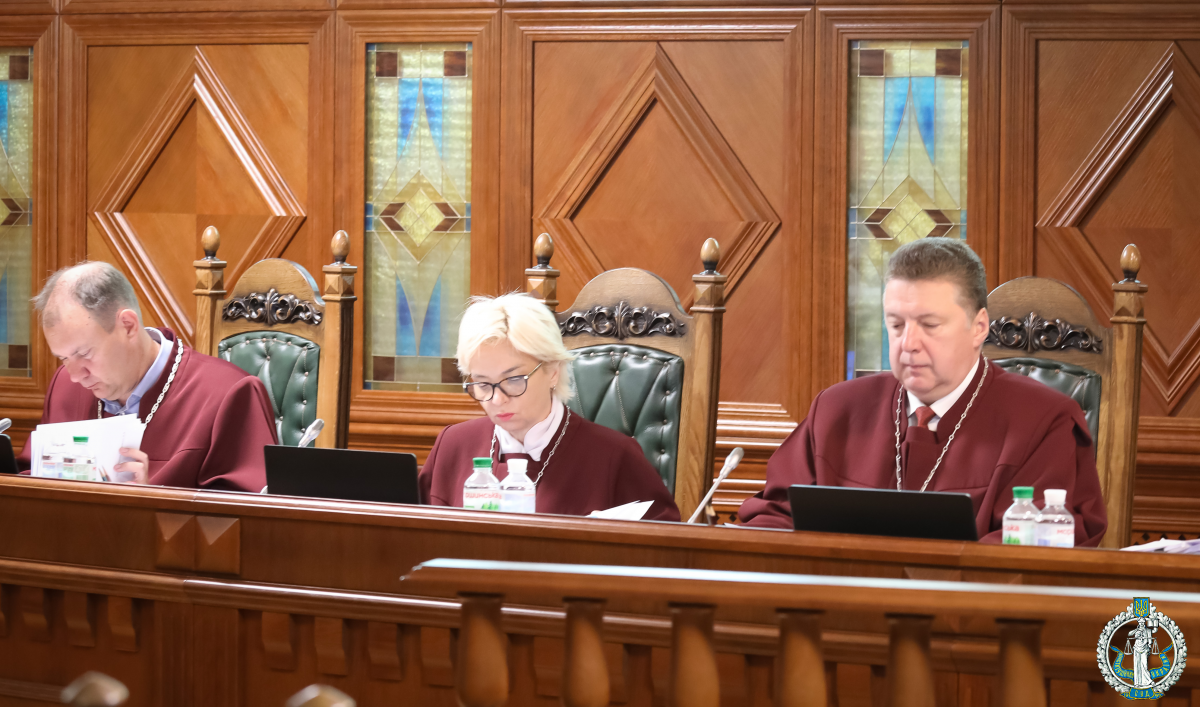On July 19, 2023, the Second Senate of the Constitutional Court of Ukraine, at the public part of the plenary session, deliberated the case upon the constitutional complaint of Anatolii Luzhynetskyi regarding the constitutionality of certain provisions of Article 111.1 of the Criminal Executive Code of Ukraine No. 1129-IV dated July 11, 2003 ( hereinafter referred to as the Code).
The Judge-Rapporteur in this case, Viktor Gorodovenko, noted that the subject of the right to a constitutional complaint had applied to the Constitutional Court of Ukraine with a request to declare certain provisions of Article 111.1 of the Code inconsistent with Article 3.1, Article 9.1, Article 23, Article 24.2, Articles 28.1 and 28.2, the second sentence of Article 51.2 of the Constitution of Ukraine.
According to the impugned provisions сonvicted persons imprisoned in minimum secure correctional colonies with less restrictive conditions, social rehabilitation units of minimum secure correctional colonies with general detention conditions and social rehabilitation units of medium secure correctional colonies and young offenders’ colonies, are granted the right to short-term visits outside the colony on the territory of Ukraine for a period not exceeding seven days, not including the time required for the round trip (not exceeding three days), in connection with the following exceptional personal circumstances: “death or serious illness of a close relative that threatens the life of the patient”.
Based on the content of the constitutional complaint and the materials attached to it, it is established that Anatolii Luzhynetskyi, who was sentenced to life imprisonment and is serving his sentence in a penal institution, applied to the court of first instance for permission to leave the penal colony for a short time. To substantiate this request, the applicant, in particular, noted that he had been in custody for twenty-four years, based on the system of risk assessment of committing a repeated criminal offence, he was at the minimal level of risk, he received incentives from the administration of the institution, had copyright registration certificates, had no dangerous tendencies, and his mother had serious health problems.
The court of first instance dismissed Anatolii Luzhynetskyi's motion in a ruling upheld by the court of appeal. Upon referring to Article 111.1 of the Code, the court noted that Ukrainian legislation does not provide for the possibility of granting leave to persons sentenced to life imprisonment and serving their sentence in a strict regime facility, but also agreed with the decision of the first instance court that there were no legislatively stipulated grounds for granting leave to this category of persons.
The court of cassation refused to initiate proceedings on the cassation appeal of Anatolii Luzhynetskyi, as the appeal was filed against court decisions that are not subject to cassation appeal.
The author of the complaint believes that the following “rights and obligations” were violated by the courts as a result of the application of Article 111.1 of the Code, namely: “the right to respect for human dignity in custody with the right to rehabilitation, the right to recognition of proof of rehabilitation and the right to short-term visits”, “the right to recognition of proof of rehabilitation in custody with the right to rehabilitation”, “the right to short-term visits”, “the right not to be discriminated against on the basis of legal status by ignoring the person’s proof of rehabilitation”, and the duty of “an adult son to take care of his disabled mother whose serious illness threatens her life”.
The Constitutional Court of Ukraine examined the case files in the public part and proceeded to the in-camera part to adopt a decision.
A video record of the public part of the plenary session is available at: An archive of video broadcasts of the sessions.




